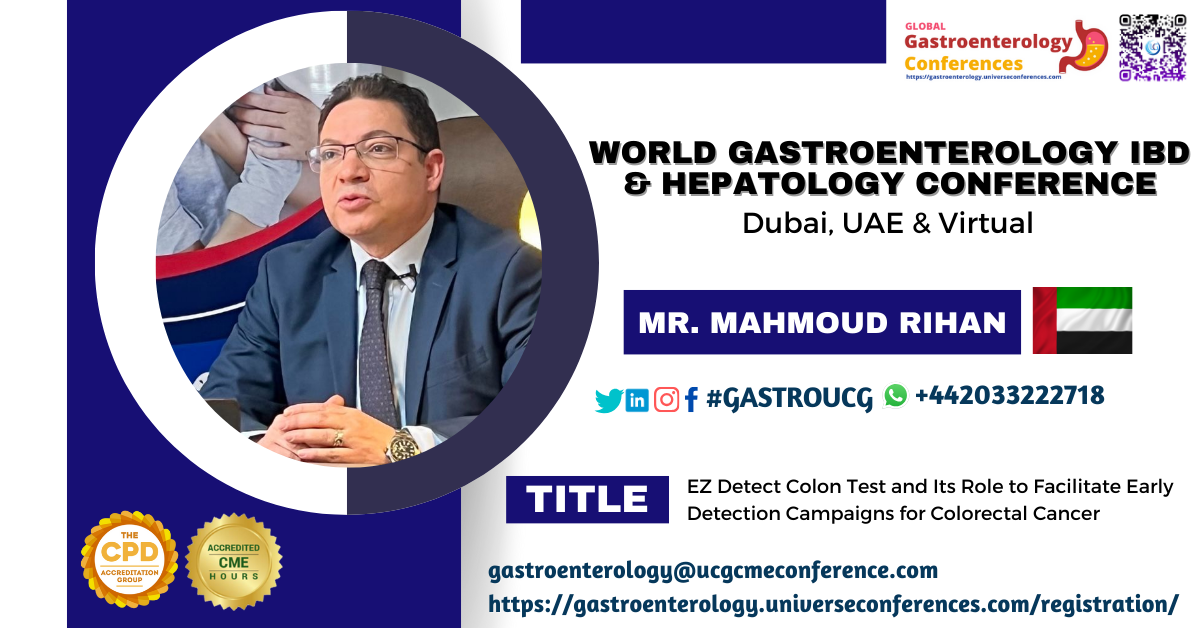CALL FOR ABSTRACT 14THGHUCG TRACK 12: CELIAC DISEASE
What is Celiac Disease?
Celiac disease is an autoimmune disorder characterized by an abnormal immune response to gluten, a protein found in wheat, barley, rye, and other related grains. When individuals with celiac disease consume gluten, their immune system mistakenly attacks the lining of the small intestine, leading to inflammation and damage to the intestinal villi, which are small finger-like projections responsible for nutrient absorption.
How did celiac disease start?
In the 1940s, Willem Karel Dicke, a Dutch pediatrician, proposed the theory that wheat protein was responsible for triggering celiac disease. Dr. Dicke made this connection during World War II when bread became scarce in the Netherlands.
Common signs of celiac disease include:
- Constant (chronic) diarrhea or constipation.
- Weight loss.
- Gas.
- Pale, bad-smelling stool.
- Unexplained low blood count that makes you feel tired (anemia)
- Tingling, numb feeling in the legs.
- Missed menstrual periods (linked to too much weight loss)
- Infertility.
Celiac disease can also cause bone density loss and a decrease in spleen function (hyposplenism).
Symptoms of celiac disease in children
Children with celiac disease are more likely to experience the following digestive problems:
- Stomach pain or vomiting
• Diarrhea
• Pale, rotten-smelling faeces
• Belly bloating or swelling
• Loss of weight
Causes and Risk Factors for Celiac Disease
According to research, celiac disease has no known cause. It often runs in families and may be affected by specific genes. Stressful medical events, like a viral illness or surgery, can cause it. A pregnancy or a psychological trauma could also.
If a parent, sibling, or other member of your immediate family has celiac disease, you have a one in ten chance of getting it yourself.
SUB TRACK:
Continent pain, Anemia, Having a bloated or full feeling, joint or bone ache, Constipation, Diarrhea, Gas, Heartburn, Ecological microbiome, Core microbiota, Microbiota, Microbiome, Abdominal imaging, Abdominal pain, GERD, achalasia, Barrett’s esophagus, heartburn, Pancreatitis, inflammation of the pancreas, Gallstones, Unintentional weight loss, Vomiting and nausea, Acid reflux, Diarrhea, constipation, Fecal incontinence, Fatigue, Loss of appetite, Irritable Bowel Syndrome, Hemorrhoids, Diverticulitis, Hepatitis A, Hepatitis B, Liver Disease, Colonoscopy, Esophagogastroduodenoscopy, Liver transplant service, Complex endoscopy, Nutrition, Hepatobiliary Clinic, Pancreas Clinic, Esophageal Clinic, Colorectal Neoplasia, Motility, Miscellaneous GI testing, Inflammatory Bowel Disease, General GI, Cholera, Enteric duplication cyst, Giardiasis, Pancreatitis, Peptic ulcer disease, Yellow fever, Hepatitis Virus, Hepatitis treatment
Caucasians and those who also suffer from other illnesses, such as those who:
- Thyroiditis with Hashimoto’s
- Diabetes type 1
- Addison’s illness
- Dwarf Syndrome
- arthritis rheumatoid
- Turner disease (a condition in which a female is missing an X chromosome)
- A number of sclerosis (MS)
- Hepatitis auto-immune
- Sjogren’s disorder
- Dilated cardiomyopathy that is idiopathic
- LgA kidney disease
- Lupus
- Rheumatoid bowel syndrome (IBS)
- persistent pancreatitis
- Psoriasis
- Scleroderma
- Williams disease
- primary cirrhosis of the liver
- Intolerance to lactose
- Colonic lymphoma
- Stomach cancer
Book your slot today for Gastroenterology Utilitarian Conference #Dubai #UAE Register Now
Diet and Celiac Disease Treatment
Medication is not used to treat celiac disease. The best thing you can do is change your diet.
If a product is not specifically marked as gluten-free, avoid eating it. Examples of such products include:
- Noodles or pasta
- Crackers
- Breading \Pancakes
- Gravies and sauces
- Bread, cake, and other baked items made with beer
- Cereals
Because commonplace items like toothpaste and prescription medications may contain gluten, it’s important to read the label.
If you are severely undernourished, your doctor may recommend gluten-free vitamins and mineral supplements, and if you have a skin rash, they may also recommend medication.
After a few weeks of eating a gluten-free diet, your small intestine should begin to heal and you’ll start to feel better.
The mode of delivery in early life has a substantial effect on the gut flora. A vaginally delivered infant is initially colonised by the mother’s vaginal and intestinal microbiota. In contrast, the baby is first exposed to skin and hospital environment bacteria during a Caesarean section. Recent studies also suggest that bacteria can be transmitted from mother to child through the rectal canal.
Scientific session
Clinical Gastroenterology
Gastroenterology Treatment
Advances in Gastroenterology
Gallbladder and Biliary Disease
Gastrointestinal Complications in Pregnancy
Gastrointestinal Disorders
Gastrointestinal Pathology
Gastrointestinal Pharmacotherapy
Gastrointestinal Cancer
Gastrointestinal Radiology
Gastrointestinal Surgery
Inflammatory Bowel Disease
Pediatric Gastroenterology
Pancreatic and Biliary Disease
Bariatric Surgery
Colorectal Oncology
Endoscopy and Hepatology
Esophageal and Gastric Disease
Pancreatic Diseases
Gastro Esophageal Reflux Disease
Barretts Esophagus
Crohn Disease
Cirrhosis
Hepatitis C
Liver and Intestine Transplant
Kidney and Pancreas Transplant
Peptic Ulcer Disease
GI Bleeding
GI Infectious Disease
Gastroenterologists
List of Gastroenterology Association
National Celiac Association
Canadian Celiac Association
Indian Society of Gastroenterology: ISG
American Gastroenterological Association
The British Association of Gastroenterology: The voice of British Gastroenterological
Association of Australia
SGNA | Society of Gastroenterology Nurses and Associates
United European Gastroenterology
Ontario Association of Gastroenterology
Atlanta Gastroenterology Associates
Canadian Association of Gastroenterology
List of Gastroenterology Society
Indian Society of Gastroenterology: ISG
Gastrointestinal Society
French National Society of Gastroenterology
International Affiliate Societies
Texas Society for Gastroenterology & Endoscopy
The British Society of Paediatric Gastroenterology
European Society for Paediatric Gastroenterology Hepatology and Nutrition
Philippine Society of Gastroenterology
Companies of Gastroenterology
Boston Scientific
Physicians Endoscopy
Modernizing Medicine Gastroenterology
Steris Endoscopy
Exact Sciences
FUJIFILM Medical Systems
United Digestive
Pfizer
AbbVie
Takeda Pharmaceuticals
We are organizing CME/CPD accredited below Gastroenterology Conferences;
Please contact our Abstract Secretariat if you have any queries at all regarding abstract submission.
Contact details:
UCG Conferences Secretariat
T: + 44 (0) 203222718
Email
Read Our Related Blog
Sites – https://sites.google.com/view/track12celiacdiseases/home
Kikoxp – https://kikoxp.com/posts/37264
Medium – https://medium.com/@saloni.ucg/track-12-celiac-diseases-172562ff75ed?postPublishedType=initial
Wordpress –https://gastroenterologyucg233.wordpress.com/track-12-celiac-diseases/
Blogger – https://gastroenterologyconference2022.blogspot.com/2024/02/track-12-celiac-diseases.html
Linkedin- https://www.linkedin.com/pulse/track-12-celiac-diseases-priyanshu-gaur-jzjnf/
Global Health Training Centre – https://globalhealthtrainingcentre.tghn.org/community/blogs/post/848046/2024/02/track-12-celiac-diseases3/
Innoget –https://www.innoget.com/education-resources/preview/3981
Quora –https://qr.ae/pKLAqm
Tumblr – https://www.tumblr.com/gastroenterologyucgconferences/741641762542649344/track-12-celiac-diseases



